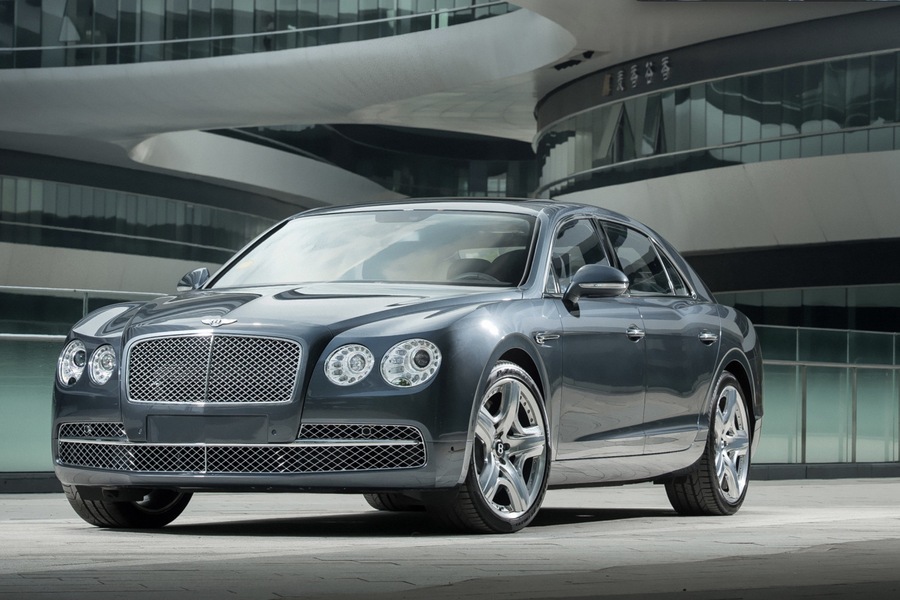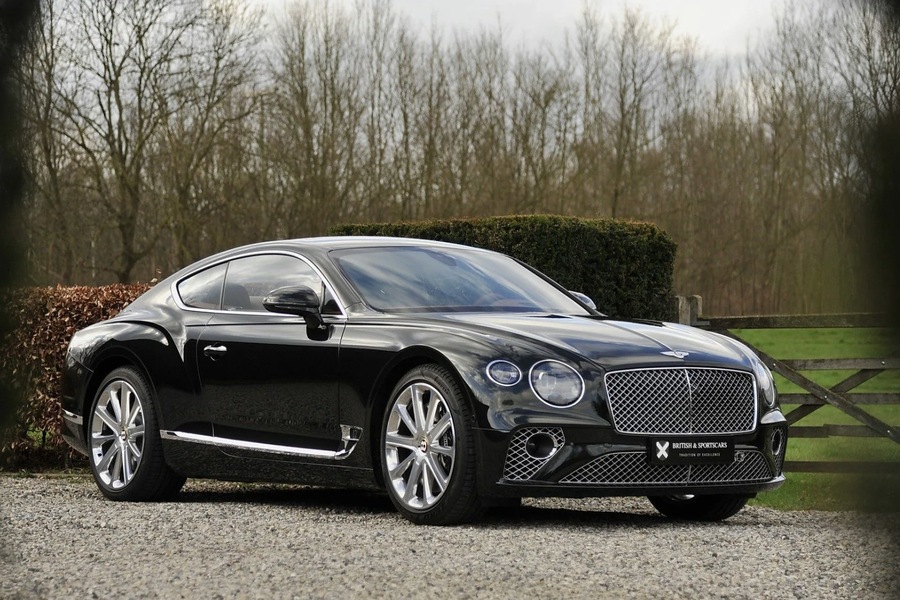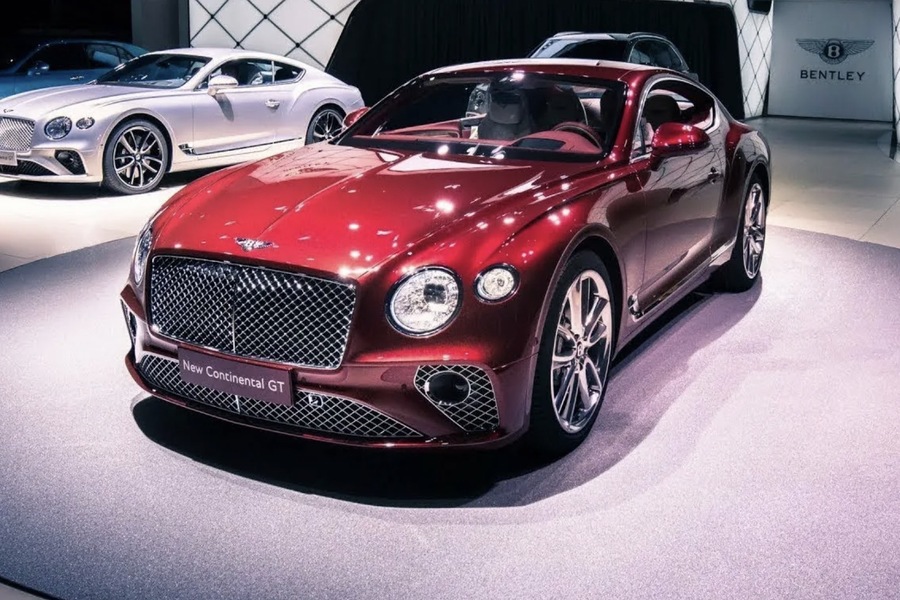
Bentley Motors, a prestigious British automobile manufacturer, is renowned for its exquisite luxury cars, combining powerful performance with elegant design. Since 1998, the company has been part of the German automotive giant, Volkswagen AG, continuing to produce vehicles that reflect both innovation and timeless luxury. These remarkable qualities make Bentley a popular choice in the car rental market for those seeking unparalleled luxury and performance. The company was originally founded in 1919 by Walter Owen Bentley, whose vision was to create “the best car in the world,” a mission that still drives Bentley’s operations today.
The Beginnings: Independent Existence (1919-1931)
Bentley’s journey began with a bold ambition. Walter Owen Bentley, along with his brother Horace Millner Bentley, had a background in selling French DFP cars. At the DFP plant, W.O. Bentley was inspired by the potential of aluminum for creating lighter pistons, which led to the development of Bentley’s first cars. The company introduced iconic models during its early years, including the Bentley 3 Litre, 4½ Litre, and Speed Six. These vehicles embodied Bentley’s ideals of a sports car—fast, powerful, heavy, with large engines, and luxurious interiors. During this period, Bentley gained a reputation for producing high-performance vehicles, often associated with motorsport success. The cars were known for their endurance, and the brand quickly became synonymous with prestige and excellence.
The Rolls-Royce Era (1931-1998)
In 1931, Bentley faced financial difficulties, leading to its acquisition by Rolls-Royce. Under Rolls-Royce ownership, Bentley models became more affordable alternatives to the luxurious Rolls-Royce cars. While Bentley lost some of its racing heritage, the brand retained its reputation for craftsmanship and luxury. Bentley cars were produced alongside Rolls-Royce models, first at the Derby factory and later at Crewe, which remains Bentley’s production center today. The association with Rolls-Royce also influenced Bentley’s design, leading to more sophisticated, comfort-focused models, distancing them from their racing roots but reinforcing their place in the luxury car market.

The Volkswagen Era (1998-present)
The year 1998 marked a new era for Bentley when Volkswagen AG acquired the company. This acquisition allowed Bentley to separate entirely from Rolls-Royce, which came under the control of BMW. Volkswagen brought fresh energy, resources, and modern technology to Bentley’s production processes. Since then, Bentley has fully embraced its roots while integrating advanced technology and sustainability into its model lineup. Under Volkswagen, Bentley expanded its range to include the Bentley Flying Spur, Bentley Continental GT, and Bentley Bentayga, each epitomizing the company’s commitment to combining luxury with performance.
The Iconic Bentley Logo
The Bentley logo, a winged letter “B”, symbolizes speed, grace, and luxury. It is one of the most recognizable emblems in the automotive world and reflects the brand’s longstanding association with performance and elegance.
Bentley’s Commitment to Craftsmanship and Innovation
Bentley vehicles are celebrated for their luxurious design, which features refined lines, elegant proportions, and impeccable craftsmanship. The interiors are often a work of art, adorned with hand-stitched leather, rich wood veneers, and polished metal accents. Many elements, such as the hand embroidery and woodwork, are crafted by skilled artisans, giving each car a unique, personalized touch. Bentley’s dedication to handcrafted excellence sets it apart in the automotive world, where mass production often prevails.
Personalization is another hallmark of the Bentley brand. The company offers a vast array of customization options, allowing customers to tailor their vehicles to their exact preferences. From leather trims and exotic materials to bespoke color schemes, Bentley ensures that every car reflects the owner’s personal style.
Despite its classic design elements, Bentley is also a leader in adopting innovative technologies. The brand seamlessly integrates advanced safety features, entertainment systems, and cutting-edge solutions to enhance driving comfort. For instance, Bentley uses adaptive soundtracks, which are composed in real time based on driving dynamics, creating a unique auditory experience that complements the journey.
Bentley is also at the forefront of sustainability in the luxury car sector. The company has committed to using eco-friendly materials in its vehicles. For example, the Bentley EXP 100 GT concept model incorporates sustainable materials such as 5,000-year-old poplar veneer and wool carpets woven using traditional British techniques. The company also utilizes solid-state batteries in its electric vehicles, which provide up to five times the energy density of conventional batteries, allowing for longer driving ranges of up to 700 kilometers on a single charge.
Bentley has also adopted renewable energy sources in its production processes, using solar panels and biogas to reduce its carbon footprint. The company aims to achieve carbon neutrality by using renewable fuel for logistics operations and transitioning entirely to electric vehicles by 2030.
Bentley’s Performance and Racing Legacy
Performance remains a core aspect of Bentley’s identity, with many of its models equipped with powerful engines that deliver exceptional speed and handling. The Bentley Continental GT Speed, for example, features a hybrid system that combines a twin-turbocharged V8 with an electric motor, delivering high performance with reduced emissions. The brand’s Bentley Performance Active Chassis system enhances driving dynamics, featuring all-wheel drive, an electronically controlled differential, and a traction vectoring system.
Bentley’s motorsport heritage continues to inspire its design and engineering philosophy. The legendary Bentley Boys, a group of wealthy racing enthusiasts in the 1920s, helped cement the brand’s status in the world of competitive racing. Their passion for Bentley cars, coupled with the marque’s motorsport successes, contributed to the brand’s legendary status.

Fun Facts and Records
Bentley’s cars are not just symbols of luxury and performance; they are also known for their remarkable durability. In fact, more than 80% of all Bentleys ever produced are still in operation today, a testament to the brand’s superior craftsmanship and reliability. Bentley’s attention to detail and quality control ensures that every car it produces is built to last.
Bentley has also set several records over the years. In 2003, the Bentley Continental GT became the fastest four-seater production car, reaching speeds of 318 km/h. In 2007, WRC champion Juha Kankkunen set a world speed record on ice, driving a Bentley Continental GT at a staggering 331 km/h on the frozen Baltic Sea.
Looking Ahead: Bentley’s Future
As Bentley looks to the future, its focus is on sustainability, with plans to fully transition to electric power by 2030. The company is working on the development of hybrid and fully electric models that maintain the luxury and performance Bentley is known for while aligning with global environmental standards. This shift is part of Bentley’s broader commitment to ethical business practices and sustainable development.
In conclusion, Bentley Motors remains a leader in the luxury automobile sector, blending classic craftsmanship with modern technology. From its rich racing heritage to its innovative approach to sustainable luxury, Bentley continues to set the standard for high-performance, bespoke vehicles that offer both elegance and excitement.

Cyclist, hustler, music blogger, Eames fan and critical graphic designer. Acting at the fulcrum of aesthetics and function to craft experiences both online and in real life. I prefer clear logic to decoration.
